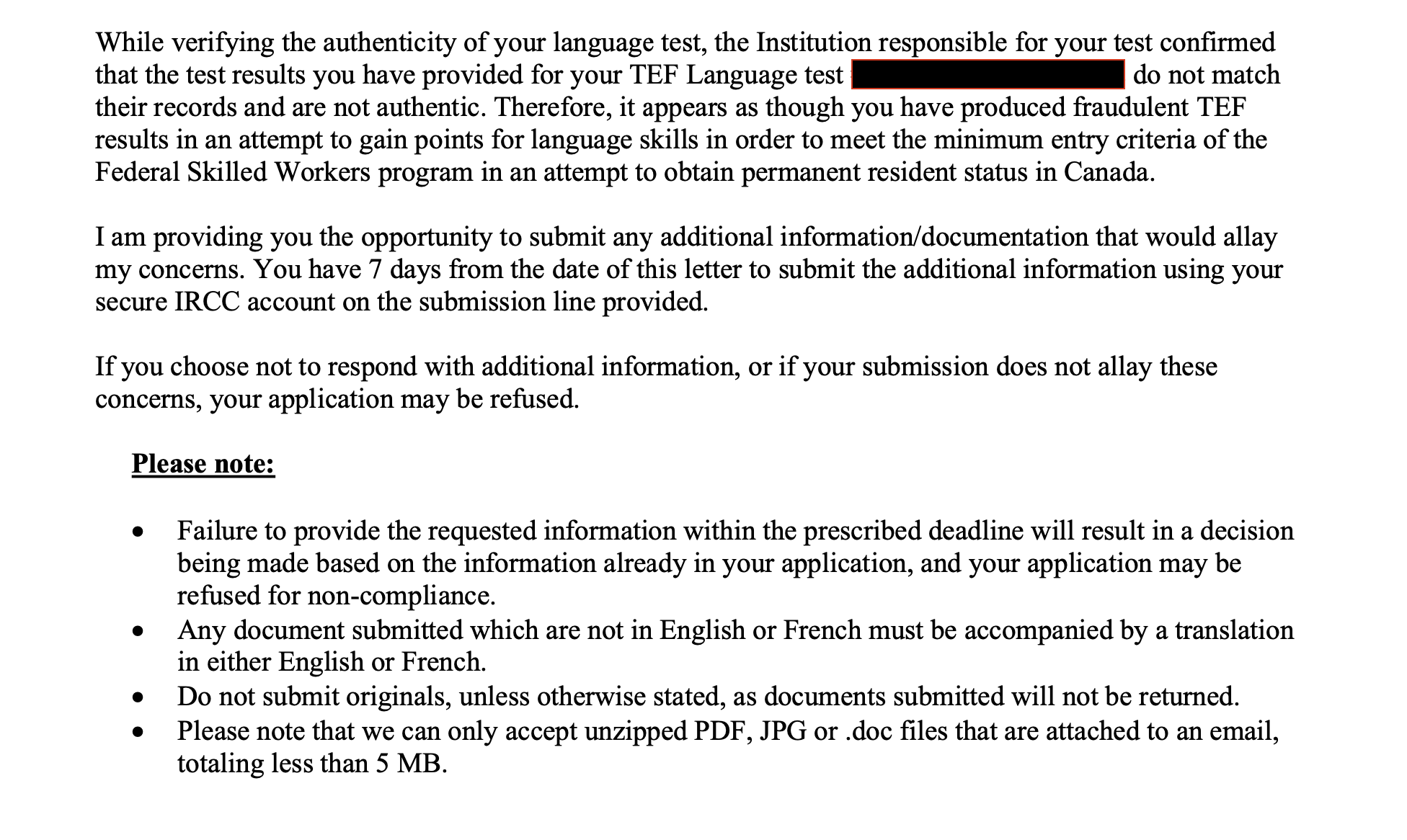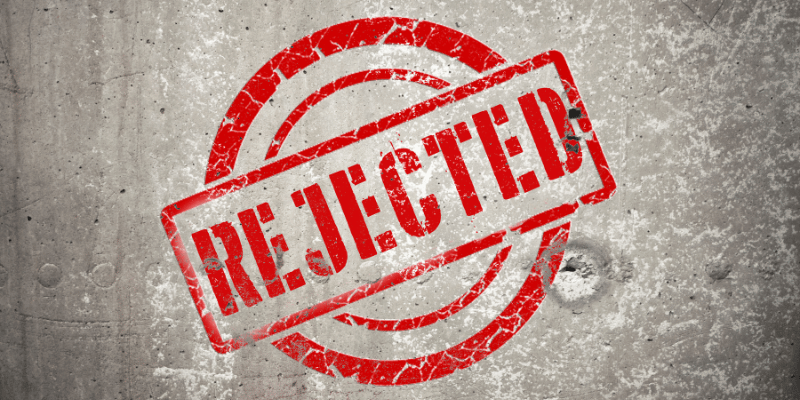Misrepresentation Ban in Canada ? Get Legal Help Now
A misrepresentation ban can make you inadmissible to Canada, affecting your immigration status. If you’ve been accused of misrepresentation, you may still have legal options to appeal or remove the ban. Our experienced immigration lawyer can help you fight back and protect your future
Clients' Feedback
Oluwadamilola Asuni
In this article, all your questions regarding the appeal for misrepresentation have been addressed. At the end of the article, by filling out the assessment form, the support team of Crest Attorneys will contact you.
What is Misrepresentation in Canadian Immigration?
Misrepresentation involves providing false, incomplete, or misleading information in Canadian immigration applications, intentionally or unintentionally.
Two Types of Misrepresentation
-
-
-
Intentional Misrepresentation – Knowingly providing false information (fake documents, false claims).
-
Innocent (Unintentional) Misrepresentation – Honest mistakes or omission of facts (e.g., forgetting previous visa denials).
-
-
What Are Common Examples of Misrepresentation?
-
Fake or Altered Documents
-
Forged diplomas, false financial statements, fake language tests.
-
-
Misleading Work Experience
-
Exaggerated employment history or roles.
-
-
Failure to Declare Past Visa Refusals
-
Not disclosing prior visa denials from other countries.
-
-
Hidden Criminal Records
-
Omitting previous charges or arrests, even minor or outdated.
-
-
Undisclosed Family Members
-
Failing to include dependents.
-
-
Misleading Intentions
-
Misrepresenting the true purpose of visit (e.g., tourist vs. worker/student).
-
Get Free Consultation
By filling out the assessment form, our support team will contact you as soon as possible
What Happens if IRCC Finds Misrepresentation?
If IRCC suspects misrepresentation, they will issue a Procedural Fairness Letter, giving you a short deadline to respond with supporting documents. This is your final chance to clarify the issue before a decision is made.
Here is an example of a Procedural Fairness Letter where IRCC asked an applicant to prove their English test results were genuine. IRCC had already confirmed the test was invalid, giving the applicant a final chance to respond before a decision.

How to respond a Procedural Fairness Letter
Receiving a Procedural Fairness Letter (PFL) can be extremely stressful, and how you respond is crucial. Stay calm and seek guidance from an experienced immigration lawyer to protect your future in Canada.
Get Free Consultation
By filling out the assessment form, our support team will contact you as soon as possible
Consequences and Penalties :
Canadian immigration authorities treat misrepresentation with the utmost seriousness. Potential outcomes include:
- Misrepresentation Ban Canada
A common penalty under Section 40(1) of the Act is a five-year ban from entering or re-entering Canada. During this period, you cannot work, study, or seek permanent residency. - Refusal of Current and Future Applications
A finding of misrepresentation cases in Canada can negatively affect your prospects for future applications, leading to repeated refusals. - Removal Orders
If you are in Canada and found to have misrepresented information, you may receive a removal order. Permanent residents sometimes have the right to appeal, while others must turn to the Federal Court. - Loss of Permanent Residency or Citizenship
If you obtained your status through Canada misrepresentation, authorities may revoke it. - Criminal Charges
In severe instances involving fraud or large-scale deception, charges may be pursued under Canadian law.
Steps to Overcome a Misrepresentation Ban
- Judicial Review
You can challenge a refusal in the Federal Court if you believe it was unjustly reached. - Authorization to Return to Canada
If you have received an Exclusion Order, you may apply for an Authorization to Return to Canada before the five-year ban ends. - Temporary Resident Permit
Under specific circumstances, you may request a Temporary Resident Permit that allows you to reside or visit Canada for a prescribed length of time. - Humanitarian and Compassionate Application
If your personal circumstances are compelling, you may pursue relief under humanitarian and compassionate grounds.
What to Expect: Misrepresentation Case Timeline
Step | Description | Timeframe |
Step 1: Procedural Fairness Letter Issued | IRCC sends a letter outlining concerns of misrepresentation. | Response due in 15–30 days |
Step 2: Applicant’s Response | Applicant submits detailed explanations and supporting documents. | Within the response deadline |
Step 3: IRCC Decision | IRCC reviews the response and makes a decision. | Typically 30–90 days |
Step 4: Judicial Review or Appeal | If refused, applicant may challenge the decision. | File within 15 days (in Canada) or 60 days (outside Canada) |

How to Strengthen Your Canadian TRV Application Amid Rising Canada Visa Rejections
Canada visa rejections have surged in 2024, sparking concerns among international students, temporary workers, and visitors. The Canada visa rejection rate increase highlights the importance of proving one’s intention to return home after a temporary stay. Below,...

10 Reasons for the rejection of Canadian Citizenship Applications
Canada is a primary destination for immigrants, offering a high quality of life and global opportunities. However, the journey to becoming a citizen isn’t without challenges. Many applicants face Canada citizenship rejection due to overlooked requirements or errors....

10 Essential Tips to Maintain Permanent Resident Status in Canada
If you're a permanent resident in Canada, maintaining your status requires ongoing effort and attention. Here are 10 essential tips to help you Maintain Permanent Residency Canada and navigate the complexities of Canadian immigration.If you're a permanent resident in...
Answers to Your Questions
What is considered misrepresentation in Canada?
Misrepresentation means giving false, incomplete, or misleading information to IRCC or CBSA, whether intentionally or by mistake.
Can a small or honest mistake still count as misrepresentation?
Yes. Even unintentional errors, like forgetting a past visa refusal, can lead to misrepresentation findings and serious consequences.
What happens if I ignore the Procedural Fairness Letter?
Ignoring it can result in a refusal, a five-year ban, or removal from Canada if you’re already inside the country.
Should I hire a lawyer to respond to misrepresentation concerns?
Yes. A lawyer experienced in immigration law can help you prepare a persuasive response and avoid costly mistakes.
What if I believe IRCC made an error in their decision?
You can challenge it by filing for Judicial Review in Federal Court within a set deadline (15 days in Canada, 60 outside).
